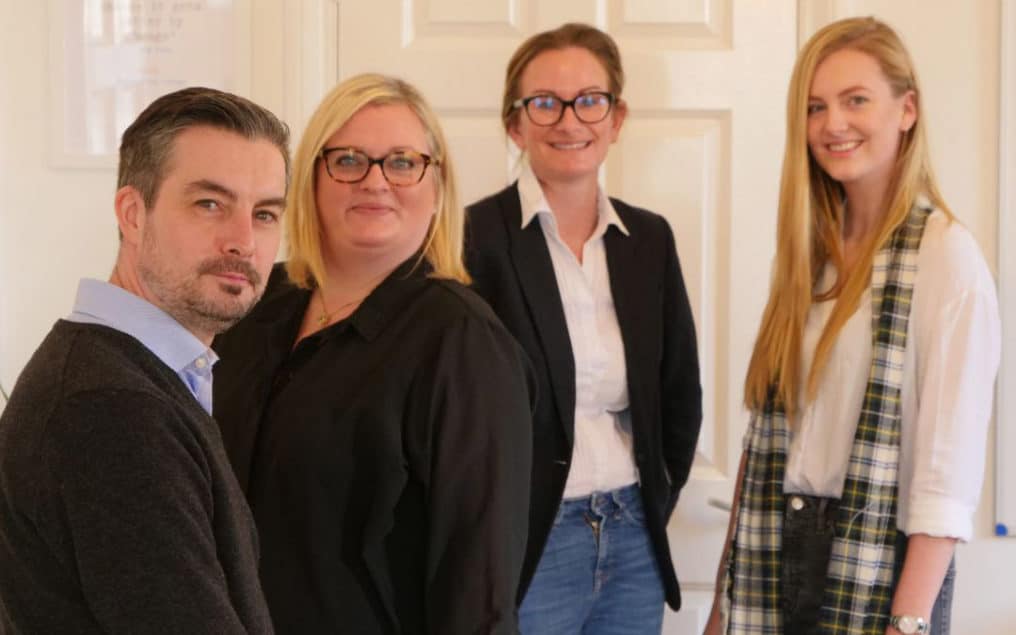Background
This consultancy’s client is a world leading bank who recognised that the financial industry was going through a sustained period of significant change causing its people to exhibit signs of low resilience; resistance to change, fractured relationships and low levels of confidence and pride in the organisation. In order to gain a competitive advantage they felt their 800+ staff, across 4 geographical locations, needed to remain energised through change, fully focused on achieving ambitious goals, and have the courage to look beyond how they currently operate individually and collectively.
Approach
To address these key challenges, they engaged the Resilience Development Company (ResDev) to deliver the Resilience advantage programme to all 800 staff. Split into 5 manageable phases over 2 years ensured everyone had face-to-face delivery of the programme. ResDev had regular meetings with the sponsor and senior team to monitor progress and impact and a project lead was allocated as well as dedicated resource in the ResDev office. At the end of each programme phase, attendees would also conduct a quality audit which was reviewed with the sponsor.
The Resilience advantage programme consisted of:
- A scientifically tested and researched methodology, providing a skill set that is actionable and easily implemented.
- 50 skills that cultivate the behaviours and habits that enable people to thrive in change and challenge.
- 2 profiles exploring the attendees’ values, strengths and personal motivations whilst highlighting the diversity within the team and how to embrace it.
- A digital resource supporting the development of resilience.
- Team coaching workshops developing resilience champions in 3 locations.
ResDev believed that to create long lasting change and outstanding ROI, several key challenges needed to be addressed. Firstly, to understand time poor modern learners and how they engage with training solutions by addressing their two key concerns: “If I learn this, will I be able to perform my tasks better and more efficiently?” and “Does this align with my end goal which is a happy, more productive and stress-free future?” Secondly, to change the mindset, habits, thinking patterns and behaviors of the 800+ population and, thirdly, to change the culture.
To address these challenges, the programme used an enquiry-based, collaborative and experiential approach to learning and sustainable behaviour change. It comprised micro learning; real time feedback; time to internalise new perspectives; ‘sticky learning’ to change behaviour; and accessible learning for all. People were also given a shared common language to reduce vulnerability and encourage open conversation. Behaviour change happens over time and in order to enable it, people had to be continuously re-engaged to develop the skills. They had to be enticed with relevant content that meant something to them at every touch point of their journey. Above all, the learning had to be useful and practical.
To measure the impact of the programme, several key metrics were tracked pre and post-programme. This included attrition levels; a yearly Engagement survey; the Generalised Anxiety Disorder 7-item (GAD-7) scale; psychological safety; productivity measurement; the self-resilience scale; and an impact analysis survey.
Outcome
Working with the client to measure key metrics across 2 years, they observed and recorded:
- 5% increase in engagement (against a long-term objective of 1%)
- 33% reduction in voluntary attrition
- 8% drop in absence with a 23% reduction in absence for managers and leaders
- 4 awards won, including Gold status in the Workplace Wellbeing Index awards
- 98% of respondents were still using the skills 3 – 24 months later, with 80% noticing a long-term positive change in their behavior
- 7.3% increase in productivity
- Average reduction of anxiety of 18% across the population: a 39% reduction in those people reporting moderate to severe anxiety; a 43% reduction in people reporting severe anxiety; and all 7 indicators of anxiety showing a reduction across the wider population
- 4/5 indicators of psychological safety improved, ranging from 4 – 14%
- 10% of people who were thinking of leaving were now staying as a result of the programme
- 96% agreed the skills gained were vital for a great culture
- 90% felt they are better able to manage stress
- 55% increase in resilience, with 93% reporting their resilience had increased
- £1.19m ROI based on reduced attrition and desire to leave in the future and £806k based on improved productivity.
In the words of the company’s COO, “Through our partnership with Resilience Development Company, we have seen a marked increase in employees telling us that they feel more able to deal with everyday stresses, both in the workplace and in their personal lives, as well as a rise in productivity and collaboration. Putting the team through the programme has been transformative. Giving people the understanding, shared language and tools to build and maintain resilience has resulted in improved engagement levels across our business”.
A participant said: “I found the course and the delivery to be really life changing. My family and colleagues have already noted a change in me and my approach to things.”
Find out more about the Resilience Development Company here

